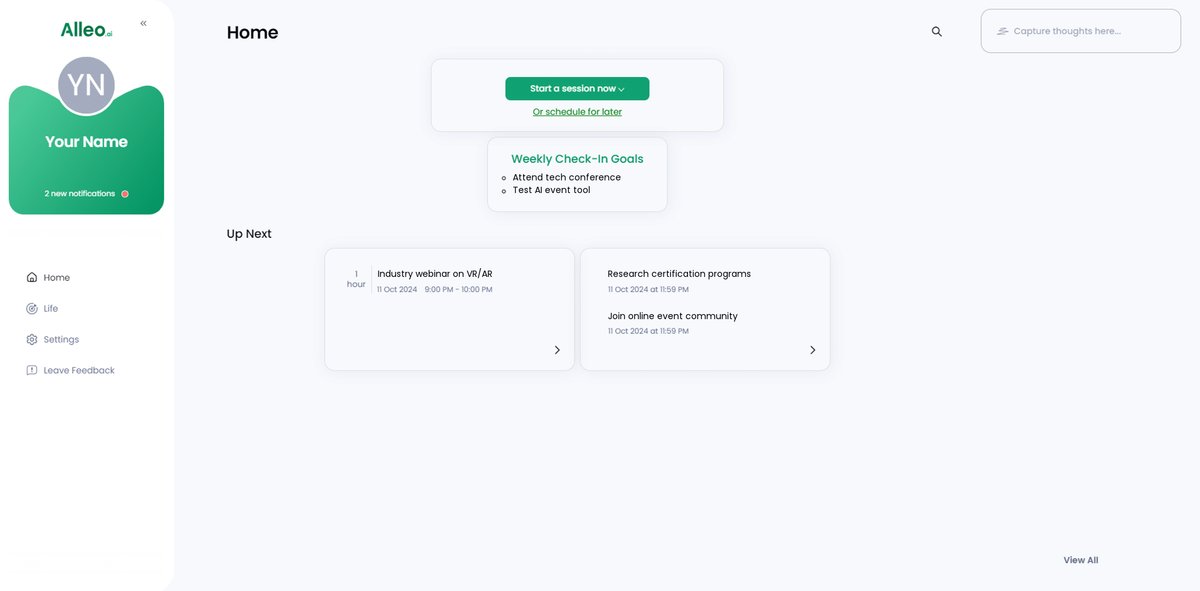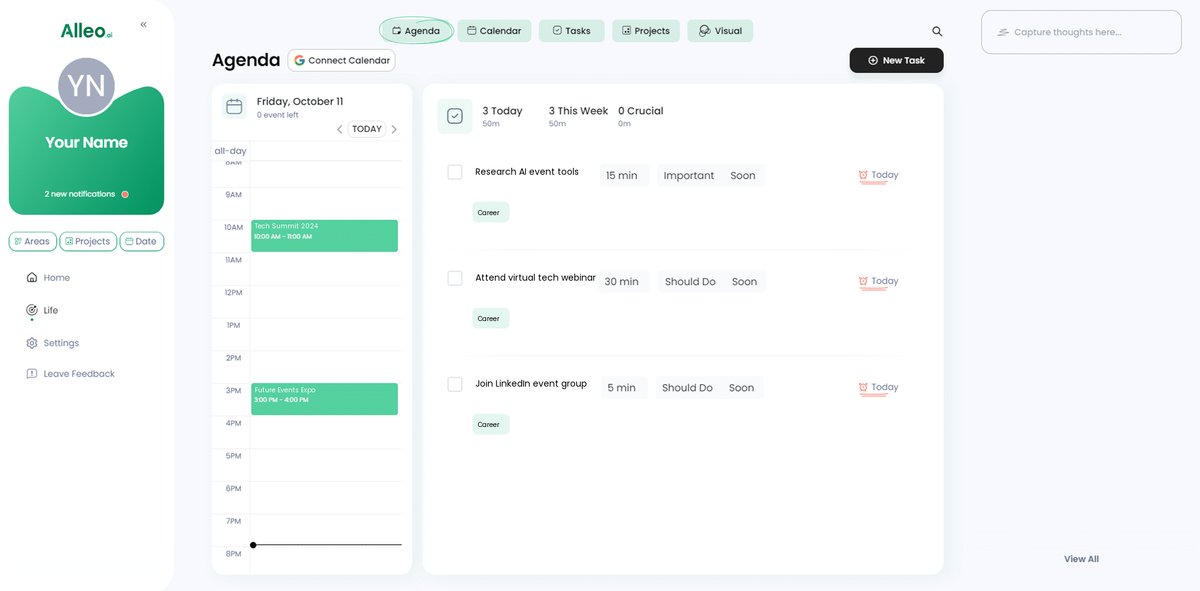Best Practices for Event Planners: Mastering New Technologies for Success
Are you struggling to keep up with the latest event technologies and unsure which ones will maximize your ROI? Event technology integration strategies can be overwhelming for many professionals.
As a life coach, I’ve helped many professionals navigate these challenges. In my experience, staying current with rapidly evolving technologies like virtual event platforms and hybrid event strategies can feel like running a marathon.
In this article, you’ll discover specific strategies and tools to help you stay ahead of the curve. We’ll cover everything from attending industry conferences to leveraging AI in event management and exploring event planning software options.
Let’s dive in and explore effective event technology integration strategies.

The Challenge of Keeping Pace with Event Technology
Navigating the rapid advances in event technology integration strategies can be overwhelming. With so many options, from event planning software to virtual event platforms, how do you choose the right tools?
Falling behind in tech adoption can lead to reduced engagement and lower ROI. It’s frustrating to see opportunities slip by due to outdated methods, especially when it comes to implementing hybrid event strategies and live streaming for events.
Many clients report struggling with selecting the right tech for their events. They often feel paralyzed by the sheer volume of choices, from event app integration to contactless check-in systems.
In my experience, people often find themselves stuck in a cycle of indecision. This results in missed opportunities and stagnant event performance, particularly in areas like AI in event management and data analytics for event planning.
But it doesn’t have to be this way. You’re not alone in this challenge of mastering event technology integration strategies.

Roadmap to Mastering Event Technology Integration Strategies
Overcoming the challenge of integrating new event technologies requires a few key steps. Here are the main areas to focus on to make progress with event technology integration strategies:
- Attend industry conferences for tech updates: Stay current on event planning software and virtual event platforms by attending events like IMEX America and Event Tech Live.
- Experiment with AI-powered event management tools: Test AI in event management tools like Cvent and Whova to streamline your processes and enhance hybrid event strategies.
- Implement mobile apps for attendee engagement: Use event app integration with features like live polling and real-time updates to boost interaction.
- Explore VR/AR for immersive event experiences: Partner with augmented reality in events providers for dynamic product demos and tours.
- Leverage data analytics for event optimization: Utilize data analytics for event planning to track key metrics and improve future events.
- Join online communities for peer learning: Engage in forums and discussions on platforms like Reddit and LinkedIn to learn about sustainable event technology and contactless check-in systems.
- Enroll in technology-focused certification programs: Enhance your skills in live streaming for events through programs offered by MPI Academy.
Let’s dive in!
1: Attend industry conferences for tech updates
Attending industry conferences is crucial for staying current with the latest event technologies and trends, including event technology integration strategies.
Actionable Steps:
- Research and register: Identify and sign up for conferences like IMEX America and Event Tech Live, which showcase event planning software and virtual event platforms.
- Schedule meetings: Plan meetings with technology providers and attend tech-focused sessions on hybrid event strategies and live streaming for events.
- Network with peers: Engage with other event planners to exchange insights and experiences on event app integration and contactless check-in systems.
Explanation:
Attending these conferences ensures you stay updated on emerging technologies and event technology integration strategies, which is key to maintaining a competitive edge. Networking and learning from peers and experts at such events can provide invaluable insights and practical strategies for implementing AI in event management.
According to Eventify, industry conferences offer unique opportunities to learn about the latest innovations.
Key benefits of attending industry conferences:
- Exposure to cutting-edge event technologies and data analytics for event planning
- Networking opportunities with industry leaders in event technology integration
- Hands-on experience with new tools and platforms, including augmented reality in events and sustainable event technology
Next, we’ll discuss experimenting with AI-powered event management tools.

2: Experiment with AI-powered event management tools
Experimenting with AI-powered tools can streamline your event technology integration strategies and enhance efficiency in event planning.
Actionable Steps:
- Identify key areas: Pinpoint aspects of your event planning process that could benefit from AI in event management, such as scheduling and attendee engagement.
- Pilot AI tools: Test AI-driven event planning software like Cvent and Whova in smaller events to determine their effectiveness.
- Gather feedback: Collect input from your team and attendees to refine your use of AI tools and event app integration.
Explanation:
These steps matter because integrating AI can significantly improve your event planning efficiency and attendee experience, especially in hybrid event strategies.
For example, AI tools like Cvent can help optimize your event management processes. According to Premier Staff, AI-powered tools facilitate personalized experiences and networking opportunities, making your events more successful. This approach aligns with modern event technology integration strategies.
Next, we will explore the benefits of implementing mobile apps for attendee engagement.

3: Implement mobile apps for attendee engagement
Using mobile apps for attendee engagement is a key event technology integration strategy that can greatly enhance the interactive experience at your events.
Actionable Steps:
- Select a mobile app platform: Choose a platform that offers features like live polling, real-time updates, and interactive maps, similar to virtual event platforms.
- Integrate and promote: Incorporate the event app integration into your event’s communication plan and encourage attendee downloads and usage.
- Measure engagement: Track app downloads, session participation, and feedback to evaluate the app’s effectiveness, utilizing data analytics for event planning.
Explanation:
These steps are essential because mobile apps can significantly enhance attendee interaction and satisfaction as part of your event technology integration strategies.
According to Premier Staff, mobile apps with interactive features boost engagement and provide real-time insights. This can lead to a more dynamic and successful event, whether it’s a traditional, virtual, or hybrid event.
Let’s continue with exploring VR/AR for immersive event experiences.

4: Explore VR/AR for immersive event experiences
Exploring VR/AR technologies can transform your event experiences by creating immersive and engaging environments, making it a key event technology integration strategy.
Actionable Steps:
- Partner with VR/AR providers: Collaborate with companies specializing in VR/AR to develop interactive product demos and virtual tours, enhancing your hybrid event strategies.
- Conduct interactive sessions: Use augmented reality in events to create engaging sessions that capture attendees’ attention and enhance their experience.
- Gather attendee feedback: Collect insights from attendees about their VR/AR experiences to identify areas for improvement and refine your event technology integration strategies.
Explanation:
These steps are crucial because VR/AR can significantly enhance attendee engagement and create memorable experiences, aligning with modern event technology integration strategies.
According to Premier Staff, VR and AR are effective for product demos, team-building, and remote participation, making them valuable tools in virtual event platforms.
Integrating these technologies ensures your events stand out and provide lasting impressions, showcasing the power of event technology integration strategies.
Next, we’ll delve into leveraging data analytics for event planning and optimization.

5: Leverage data analytics for event optimization
Using data analytics is crucial for optimizing your events and driving better results, making it a key event technology integration strategy.
Actionable Steps:
- Implement analytics tools: Use platforms to track key metrics like attendee satisfaction, engagement levels, and ROI. This is essential for effective data analytics for event planning.
- Analyze data patterns: Regularly review the data to identify trends and insights that can inform future event decisions, especially for hybrid event strategies.
- Adopt data-driven strategies: Develop and implement strategies based on your data analysis to improve overall event experience, including AI in event management.
Explanation:
These steps matter because data-driven decisions lead to more effective event planning and higher ROI. For instance, using data analytics tools can help you understand attendee behavior and preferences, which is crucial for event technology integration strategies.
According to Premier Staff, data analytics are crucial for measuring event success and making informed improvements.
Key metrics to track with data analytics:
- Attendee engagement rates
- Session popularity and feedback
- ROI for sponsors and exhibitors
Next, we’ll discuss joining online communities for peer learning.

6: Join online communities for peer learning
Joining online communities for peer learning is essential for staying updated with the latest event technologies and industry trends, including event technology integration strategies.
Actionable Steps:
- Participate in forums: Engage in discussions on platforms like Reddit and LinkedIn to exchange insights with other event planners about event planning software and virtual event platforms.
- Attend virtual meetups: Join webinars and virtual meetups hosted by online communities to learn from experts and peers about hybrid event strategies and live streaming for events.
- Share your experiences: Actively contribute your knowledge and experiences in these communities to help others and build your network, focusing on topics like event app integration and contactless check-in systems.
Explanation:
These steps matter because active participation in online communities can provide valuable insights and support for implementing event technology integration strategies.
According to Expo Pass, staying updated with industry trends through peer learning is crucial for success in areas such as AI in event management and data analytics for event planning.
Engaging with peers helps you stay informed and adapt to new technologies effectively, including augmented reality in events and sustainable event technology.
Joining these communities helps you stay connected and continuously learn from others about the latest event technology integration strategies.

7: Enroll in technology-focused certification programs
Enrolling in technology-focused certification programs is crucial for staying current and competitive in the event planning industry, especially when it comes to event technology integration strategies.
Actionable Steps:
- Research certification programs: Identify programs offered by organizations like MPI Academy that focus on event technology, including event planning software and virtual event platforms.
- Dedicate study time: Allocate specific hours each week to complete coursework and apply what you’ve learned about hybrid event strategies and live streaming for events.
- Showcase your certifications: Highlight your new skills and certifications in event app integration and contactless check-in systems on your resume and LinkedIn profile.
Explanation:
These steps are essential because certifications validate your expertise and commitment to staying updated with industry trends, including AI in event management and data analytics for event planning.
According to ClearEvent, continuous learning is key to success in the evolving event industry. Certification programs provide structured learning and are recognized as industry standards for event technology integration strategies.
Benefits of technology-focused certifications:
- Enhanced credibility in the industry
- Up-to-date knowledge of emerging technologies like augmented reality in events
- Improved career prospects and earning potential
This proactive approach ensures you remain relevant and skilled in integrating new technologies, including sustainable event technology.

Partner with Alleo for Event Tech Success
We’ve explored the challenges of integrating new event technologies and the steps to achieve effective event technology integration strategies. But did you know you can work with Alleo to make this journey easier and faster?
Setting up an account with Alleo is simple. Create a personalized plan tailored to your event planning software and virtual event platform needs.
Alleo’s AI coach offers full coaching sessions on hybrid event strategies, just like a human coach. You’ll get actionable advice on live streaming for events and follow-up on progress.
The coach handles changes in event app integration and keeps you accountable via text and push notifications, helping you implement contactless check-in systems.
Ready to get started for free? Let me show you how to leverage AI in event management!
Step 1: Logging In or Creating Your Alleo Account
To begin your journey with Alleo’s AI coach for event technology integration, Log in to your account or create a new one to access personalized guidance and support.

Step 2: Choose “Building better habits and routines”
Select “Building better habits and routines” to develop consistent practices for staying updated with event technologies, helping you overcome the challenge of keeping pace with rapid advancements in the industry.

Step 3: Select “Career” as Your Focus Area
Choose “Career” as your focus area to tackle event technology challenges head-on. This selection will provide tailored guidance on integrating new tools, staying competitive in the industry, and maximizing your professional growth as an event planner.

Step 4: Starting a Coaching Session
Begin your journey with Alleo by scheduling an intake session, where you’ll discuss your event technology goals and create a personalized plan to integrate new tools and strategies into your events.

Step 5: Viewing and Managing Goals After the Session
After your coaching session, check the Alleo app’s home page to review and manage the goals you discussed, helping you stay on track with implementing new event technologies.

Step 6: Adding Events to Your Calendar or App
Use the calendar and task features in the Alleo app to add important event technology conferences, workshops, and deadlines, allowing you to easily track your progress in staying up-to-date with the latest event tech trends and solutions.

Bringing It All Together
By now, you understand the importance of staying up-to-date with event technology integration strategies. Adapting to new tools can enhance your events’ impact and ROI.
Remember, it’s not about adopting every new tech out there. Focus on what will truly benefit your events, such as virtual event platforms or hybrid event strategies.
Take small, manageable steps in implementing event planning software.
Experiment, learn, and don’t be afraid to ask for help with live streaming for events or event app integration.
If you ever feel stuck, Alleo can provide personalized guidance on event technology integration strategies. Our AI in event management is here to keep you on track.
You don’t have to do this alone in navigating contactless check-in systems or data analytics for event planning.
Try Alleo for free and see how it can streamline your tech integration journey, including augmented reality in events.
Let’s make your next event unforgettable with sustainable event technology!